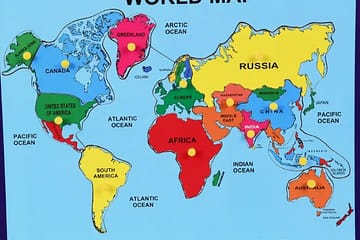
26. Which sociological, perspective emphasizes, the ways, in which social institutions shape individual behaviour, and experiences,?
Ans. “Structural functionalism”..
27. What term, refers, to the ability ,to see the connections, between personal troubles, and larger social issues,?
Ans. “Sociological imagination”..
28. Who coined ,the term (stereotype), to describe oversimplified beliefs, about members of a social group,?
Ans. “Walter Lippmann”..
29. What is, the term, for the systematic killing, of one group of people, by another group?
Ans. “Genocide”..
30. Which sociological, perspective focuses, on the ways, in which individuals, and groups resist, and challenge dominant social structures?
Ans. “Critical theory”..
31. Who did develop, the concept, of the (glass ceiling), to describe the invisible barriers, that prevent women, and minorities from advancing, in the workplace?
Ans. “Feminist sociologists”..
32. What is, the term ,for the process, by which cultural traits, are transmitted, from one generation to the next?
Ans. “Cultural reproduction”..
33. Which sociological ,perspective focuses, on the ways, in which individuals construct their identities, through social interactions?
Ans. “Symbolic interactionism”..
34. Who di introduce, the concept of (cultural capital), to describe the cultural knowledge, and symbolic resources, that people use to gain social advantage?
Ans. “Pierre Bourdieu”..
35. What is, the term, for a negative attitude, or feeling toward, an entire category of people, often based on stereotypes?
Ans. “Prejudice”..
36. Which sociological, perspective emphasizes the ways, in which social institutions can be dysfunctional, and harmful to society?
Ans. “Conflict theory”..
37. What is, the term, for a set of beliefs, and practices related, to the supernatural, that often involves rituals, and ceremonies?
Ans. “Religion”..
38. Who is regarded, for his theory of social constructionism, which argues, that reality, is socially constructed, through language, and communication?
Ans. “Peter Berger and Thomas Luckmann”..
39. What is, the term, for the unequal distribution of resources, opportunities, and rewards among members of a society?
Ans. “Social inequality”..
40. Which sociological perspective, would be most interested, in studying how social norms, and values shape individual behaviour, and experiences?
Ans. “Structural functionalism”..
41. Who did develop, the concept ,of the (power elite), to describe the small group of individuals, who hold disproportionate power, and influence in society?
Ans. “C. Wright Mills”..
42. What is, the term, for a group of people, who share a similar cultural background, and social status?
Ans. “Social group”..
43. Which sociological, perspective focuses, on the ways, in which individuals, and groups use symbols to communicate, and create shared meanings?
Ans. “Symbolic interactionism”..
44. What term, refers, to the belief that one’s own culture is normal, and natural, while other cultures, are strange, or inferior?
Ans. “Cultural relativism”..
45. Who did introduce, the concept of (intersectionality), to describe how various social categories intersect, and interact to shape individual experiences of privilege, and oppression?
Ans. “Kimberlé Crenshaw”..
46. What is, the term, for the process, by which individuals actively select, interpret, and modify information to fit with their existing beliefs and values?
Ans. “Cognitive dissonance”..
47. Who did develop, the concept of (agency), to describe individuals’ capacity to act independently, and make their own choices within social structures?
Ans. “Anthony Giddens”..
48. What is, the term, for a social group characterized, by intimate, long-term, face-to-face interaction, and strong emotional ties?
Ans. “Primary group”..
49. Which sociological, perspective emphasizes, the ways, in which social institutions maintain, and reproduce patterns of inequality, and privilege?
Ans. “Critical theory”..
50. Who did introduce, the concept, of (habitus), to describe the ingrained habits, skills, and dispositions that individuals acquire, through socialization?
Ans. “Pierre Bourdieu”..



0 Comments